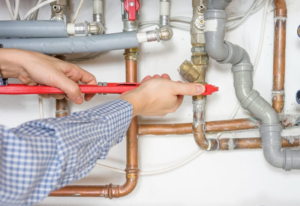Real estate includes land and all artificial–man-made–improvements that are attached to it, such as roads, fences and buildings. It also includes a bundle of legal rights that owners have in the property.
The industry is complex and contains multiple specialties, including brokers, appraisers, attorneys, financiers and investors. Real estate is a significant part of the economy, contributing to job growth and economic development. Click the https://www.realestateagentindallas.com/ to know more.

Land is a vital component of real estate. It encompasses the actual surface of the earth as well as any permanent natural or artificial attachments on or above the land, such as trees or minerals under the ground. It also includes structures that have been inserted into the surface of the land, such as buildings or roads. Real estate can be divided into several categories, including residential, commercial and industrial.
Homes are the most common form of residential real estate, and they come in a variety of shapes, sizes and styles. They can be owned outright, or they may be rented from a landlord. The purchase and sale of homes is a complicated process that requires the assistance of licensed real estate brokers, attorneys and lenders. Real estate is a popular investment option for both individuals and businesses, as it provides steady income and long-term security.
Commercial property includes retail stores, restaurants, offices and other buildings that generate income through sales or services. It also includes warehouses and other facilities that facilitate production and distribution. This category of real estate can be broken down further into specialized types, such as research and development or manufacturing.
Vacant land is real estate that has few or no structures, and it includes areas that have been reclaimed from other uses. It also includes farms, ranches and other areas that produce food for people to consume. This type of land is important for the economy, as it contributes to the growth of the nation’s food supply and creates jobs.
The value of real estate depends on its location. People prefer certain geographic locations over others, and this preference is reflected in the prices of land in those places. The cost of living also affects the value of real estate, and it is important to keep this in mind when buying and selling real estate. It is also important to understand the difference between real estate and personal property. The former is immovable, while the latter can be moved. The complexities of real estate can be daunting for new investors, but working with a wealth management advisor who specializes in this area can be helpful.
Leases
Leases are a common way to rent commercial property, such as retail stores and office buildings. They outline occupancy rules and maintenance responsibilities, and can include provisions specific to a business’s needs. A real estate lease can also refer to an arrangement in which the owner of a building or something like a car allows another person to use it for a certain period of time in exchange for payments of money.
There are many types of real estate leases, both residential and commercial, and their terms may vary in length. Some have the option to be terminated, while others are permanent. The amount of rent paid and the rights granted by a lease are usually negotiated.
Some residential leases are standard with the same terms for all tenants, while those for commercial properties are typically negotiated to fit the needs of each tenant. In either case, most landlords require the tenant to sign the agreement before occupying the space.
The most basic type of commercial real estate lease is a gross lease, in which the tenant pays a base rent plus utilities. This includes any fixed costs such as water and sewer charges, while the tenant is responsible for all variable costs such as electricity consumption. Landlords may add an escalation clause to the agreement, allowing them to increase the base rent each year based on operating expenses.
In a modified gross lease, the landlord is responsible for most fixed costs, but the tenant pays for some variable costs, such as insurance and utility charges. The landlord and tenant may negotiate a percentage of the building’s operating costs to be covered by the tenant, which could help lower overall leasing expenses.
When leasing commercial property in New York, it is important to work closely with your broker and legal counsel to negotiate favorable terms for your business. This can include things like rent concessions, tenant improvement allowances, and more. The right commercial real estate attorney can ensure that your lease meets your business’s needs while complying with local and state laws.
Financing
Real estate financing is the process of securing capital to invest in real estate. It is a vital part of real estate investing, as it allows investors to leverage their investments and expand their portfolios. Real estate financing can be obtained through various methods, such as mortgages and private loans. It is important to assess each option’s terms and conditions before choosing one. It is also essential to understand the role of leverage and how it affects the risk and reward of a real estate investment.
The type of financing you choose will depend on your long-term goals and preferred investment strategy. For example, if you are looking to build wealth over the long term, you may want to consider using a self-directed retirement account to invest in real estate. This option is tax-efficient and offers diversification of your assets. Another option is to use an FHA 203(k) loan, which is specifically designed for property renovations. This option can be especially helpful for first-time homebuyers and veterans.
Conventional mortgages are a popular source of real estate financing for residential properties, such as single-family homes and apartments. These loans adhere to regulations set by government-sponsored enterprises like Fannie Mae and Freddie Mac, which can reduce the risk for lenders. They also offer competitive interest rates and low down payment requirements. Other types of real estate financing include hard money loans and peer-to-peer lending.
Commercial real estate is a broad category that includes retail, office, industrial and multifamily properties. It can be purchased by individuals, corporations, and public entities. Many real estate developers and investors need financing to purchase or develop commercial properties. Commercial financing options include traditional loans, private equity, and venture capital.
To obtain real estate financing, you must have a high credit score and provide proof of income. You must also be able to meet minimum down payment requirements and demonstrate adequate cash reserves. In addition, you must be able to explain your real estate investment plan in detail. If you are a first-time investor, it is a good idea to work with a real estate professional.
